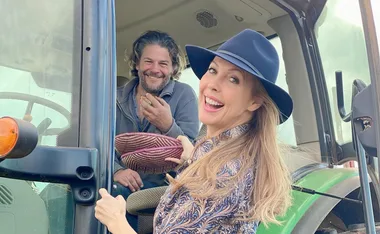Spoiled children are on the rise in modern society, and it is having harmful effects on their attitudes as adults.
Speaking to Time recently, wealth manager and author Richard Watts blames this on the increased amount of ‘drone parenting’ happening in western society.
“Drone parents are strategic, focusing on all kinds of ways of bailing their kids out,” he said.
“They’re running ahead on the field to make sure the pathway has been cleared. They don’t necessarily understand they’re doing it — we all love our kids — but in the process of bailing them out and becoming a drone, we’ve started taking them out of [necessary] struggles.”
And what are the ramifications of drone parenting into adulthood?
The children are not able to develop a sense of pride for their work or working their way of difficult situations. They’re also more likely to feel entitled to career advancement and power, putting in little effort to actually get it themselves.
Unless you wanting to bailing your child out forever, it may be time to look at some tougher love.

But when does love become spoiling and when do we need to start worrying?
‘”Spoiling implies that, unless you take a firm hold of your baby’s behaviour from the start, he’ll grow up to be selfish and demanding,’ says child psychologist Dr Pat Spungin. ‘But under 12 months there’s no wilfulness in your baby, and you really can’t spoil him.”
Once your baby passes his first birthday, he’ll start to see himself as a little individual with a will of his own. This is when ‘besotted mummy’ needs to become ‘firm-but-fair mummy’ if you want to avoid spoilt and demanding behaviour later on. “Once your child is over 12 months he’ll have an increasing sense of self-assertion,” says Dr Spungin.
“This is the age where not giving in and being consistent are important.”
This overprotective attitude may also be contributing to a decline of behaviour in schools as teachers become more wary of punishing belligerent children, who are acutely aware of their “rights”.
So, why this slippery slope towards a child-centred society, breeding a Generation Y that is “unrealistic, self-centred and greedy”, according to the Association of Graduate Recruiters in the UK?
Professor of sociology at the University of Kent, Frank Ferudi, thinks that this behaviour is more of an “adult-centeredness” rather than a “child-centeredness”, and told The Times recently that “it’s a way of reassuring ourselves that our children are going to be insulated from pain and adversity”.
He said, “We tell children they are wonderful now for tying their shoelaces or getting 50 percent in an exam. But, really, it’s our way of flattering ourselves that we’re far more sensitive to children than people were in the past.”
Professor Furedi says that, by treating children like this, parents and teachers are unwittingly giving them the message that they won’t be able to cope with life. Is this really how we want to influence our children?
So, while positive psychology and teaching children the value of their self-worth undoubtedly has its merits, the key here seems to be a greater balance. Remember to remain firm and be there to catch your children if they fall… but they’re not going to know if they can fly unless you let them jump.











